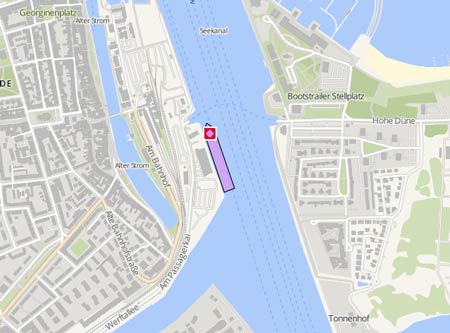CAPTAIN KOSTICHEV
Course/Position
Latest ports
Latest Waypoints
Latest news
Tanker among sanctioned vessels with fake insurance by Russian operated Romarine AS
The insurance issued to dozens of aging oil tankers used by Russia to skirt international sanctions was bogus, according to Norwegian authorities, which are now investigating the Norway-registered Romarine AS, which is behind the forged documents and is fully owned by Andrey Mochalin, a Russian citizen and former employee of the Norwegian insurer Hydor AS. The company was not registered as an insurance provider by Norway’s Financial Supervisory Authority Finanstilsynet (FSA). The firm made an effort to show the tankers involved had Western insurance coverage in the event of pollution or sinking. The FSA sent a warning to Romarine in January of this year, but the company failed to respond, prompting the FSA to issue an order on March 4, 2025, instructing the firm to halt operations. Romarine stated it was aware of the FSA’s order and that it had replied “with some delay through our lawyers.” Romarine said it operated in line with applicable regulations, but that it had decided to stop taking new business until there is a positive feedback from the authority. The FSA, however, has in fact not received a reply from Romarine. Norway’s official company registry shows that Romarine’s website is located in Russia with an IP address in St Petersburg. Romarine’s website as of early March listed at least 30 tankers subject to U.S., EU or UK sanctions, including the 'Captain Kostichev', which is operated by United Arab Emirates-based Stream Ship Management, and the 'Ionia' (IMO: 9312505), owned and operated by Seychelles-based Narus Maritime Corporation and since renamed 'Oilstar', A certificate of insurance provided by the 'Ionia' to Russian port authorities in Primorsk on Feb 2 and dated Jan 9, listed Romarine as its insurance provider. Another presented to port authorities in De Kastri by the 'Captain Kostichev' was dated March 24 and also listed Romarine as its insurer. Although that certificate said it was valid until April 24, the vessel has since been deleted from Romarine’s website, while the 'Ionia' was remaining. Regarding vessels that are subject to Western sanctions, Romarine said on March 12 that they appeared on its website by mistake due to a technical glitch. These vessels cannot access Western insurance markets because of sanctions, and have turned to Russian and Indian insurers to plug the gap. The FSA became concerned about Romarine after it received an emailed inquiry last September from overseas asking about a document carrying FSA’s letterhead which certified Romarine as a vessel’s insurer and immediately saw that it was false, The letterhead had possibly been copied and pasted into the forged document. It cited non-existent Norwegian law. The person who signed it never worked at the FSA, and the stamp was false. The FSA on March 25 posted a warning on its website against using the services of Romarine. The Oslo police have also launched an investigation into Romarine’s business activities after receiving a complaint from the FSA. They were investigating four people, two Norwegian nationals, one Bulgarian and one Russian, on suspicion of creating and using falsified documents and performing insurance mediation activities without a license. They said a search of the residence of one of the suspects was conducted in late March. The two Norwegians denied knowledge of any wrongdoing; The Russian resident of St. Petersburg owns and manages the business. He was not in custody, and despite the instructions from Norwegian authorities, the company's website remained online. As of March 25, the FSA was unable to reach the brokerage and warned against entering into agreements with the Romarine AS and against using the services offered through the company's websites. The new insurance inspection regime in the Baltic Sea turned up seven tankers that claimed to be covered by Romarine. The false coverage documents passed muster at the time, given the Norwegian address and connections of Romarine, but had no actual insurance behind them. This left the tankers dangerously uncovered in the event of a casualty or a spill.
Upload News

